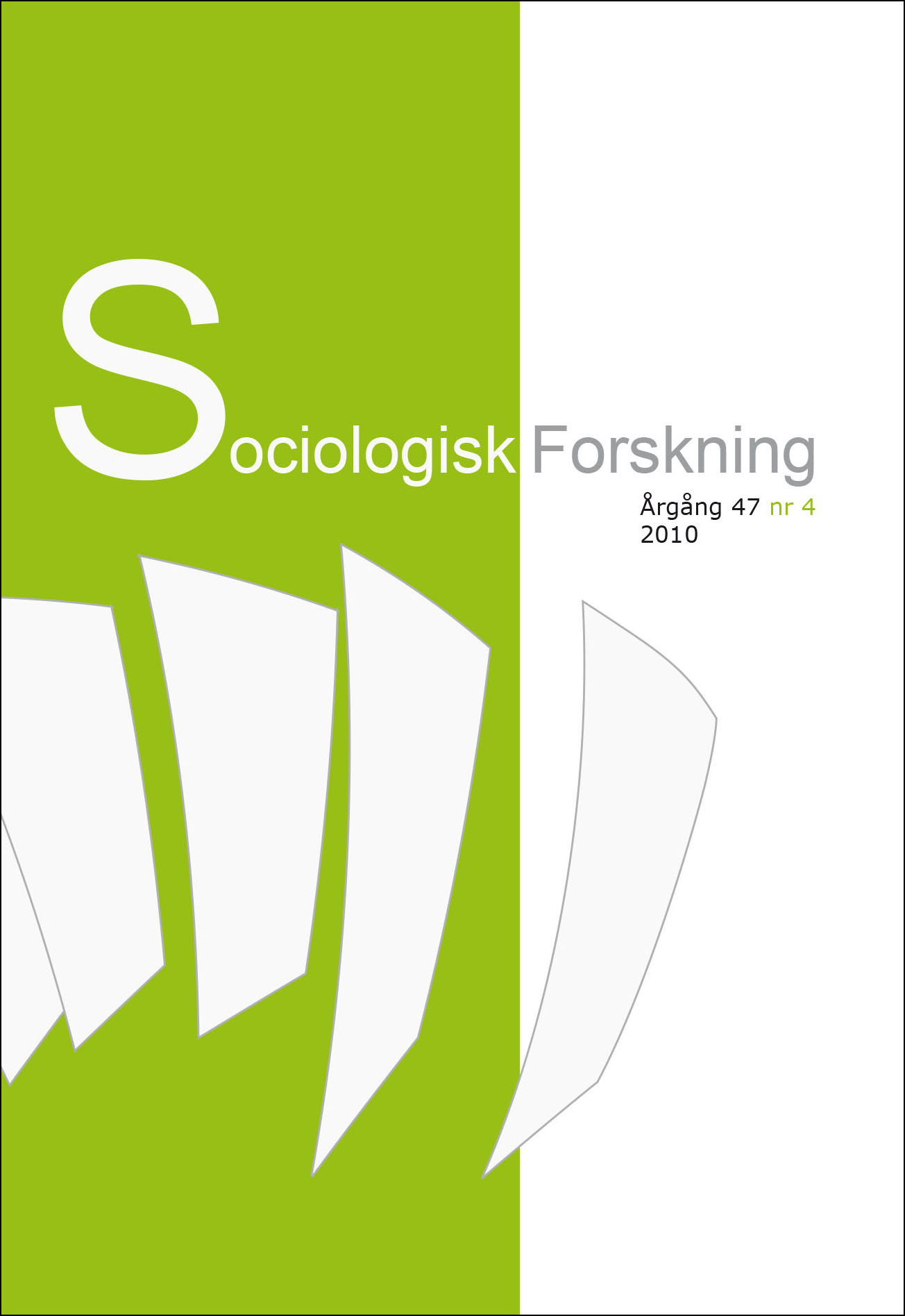Motstånd och stöd
en studie av svenska muslimska församlingar
DOI:
https://doi.org/10.37062/sf.47.18471Abstract
Opposition and Support: A Study of Swedish Muslim Congregations
Anti-Islamic attitudes are deeply rooted in Western Europe, and Muslims have, especially in the post-September 11 context, experienced discrimination and demonization. But how do anti-Islamic attitudes affect practicing Muslims and their congregations? The aim of this study, the first of its kind in Europe, is to present a statistically representative view of how Muslim congregations in Sweden experienced the reactions from the surrounding community. The results of the survey carried out show that according to the representatives of the local congregations (n=105) half of the congregations have experienced opposition from the local community and in 40 percent of the congregations criminal offences have been committed against active Muslims or their places of worship. This opposition is closely connected with two types of situations: either international occurrences (i.e. terrorist bombings in, for example, London, Madrid) or local events that have emphasized the presence of Islam in the public sphere. A multivariate analysis of the results of the study shows that the strongest opposition has taken place in small municipalities with a large proportion of immigrants. However, opposition does not preclude support. On the contrary, opposition appears to have a mobilizing effect on those who support the right of Muslims to exercise freedom of religion. However, neither opposition nor support are the key factors affecting whether congregations see themselves as established in the local community. The degree of anchorage depends on the demographic composition of the congregation and on the degree of contact that the members have with the surrounding community.
Downloads
Published
How to Cite
Issue
Section
License
All content in Sociologisk Forskning is published with immediate open access, under the Creative Commons license CC BY-NC-ND 4.0.
All content may be read, downloaded, shared and printed for non-commercial purposes, free and without fees. Contents may not be altered. When content is reused, author, source and a link to the copyright licence must be provided. The author retains copyright to their content. No publication fees are charged.





